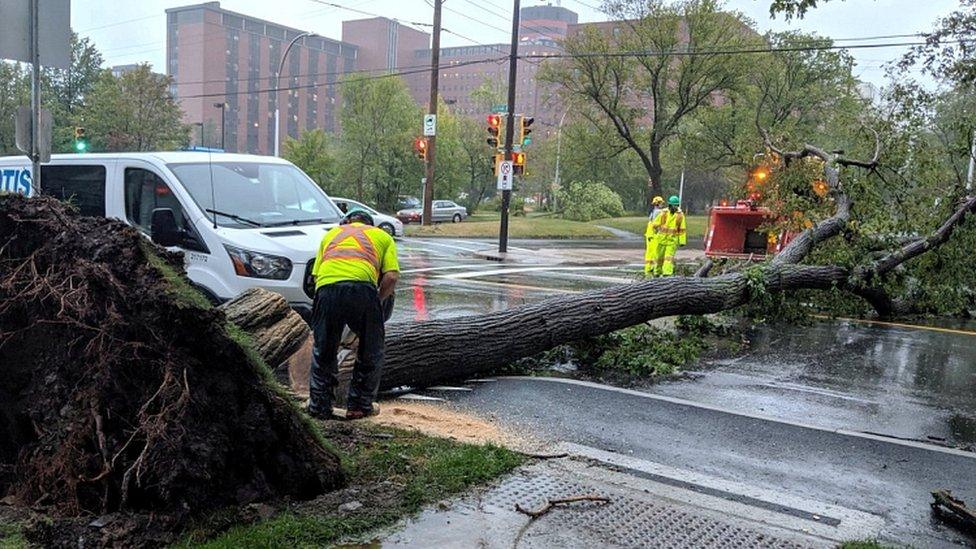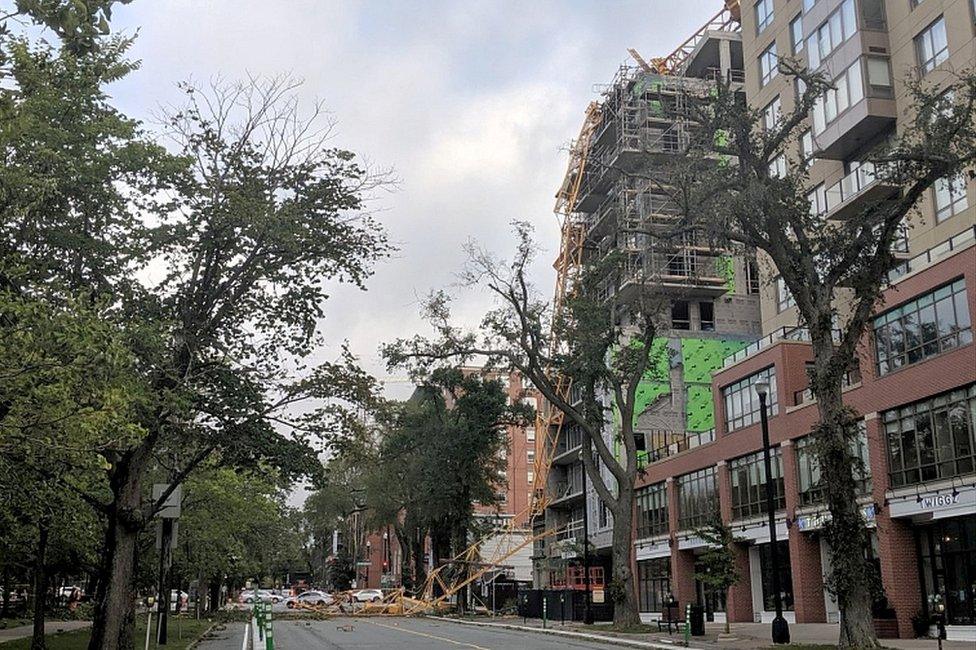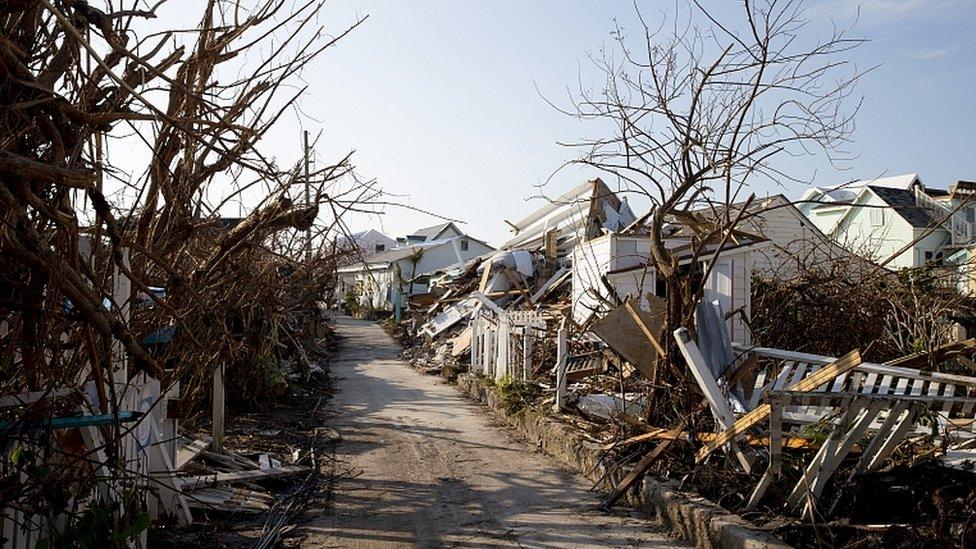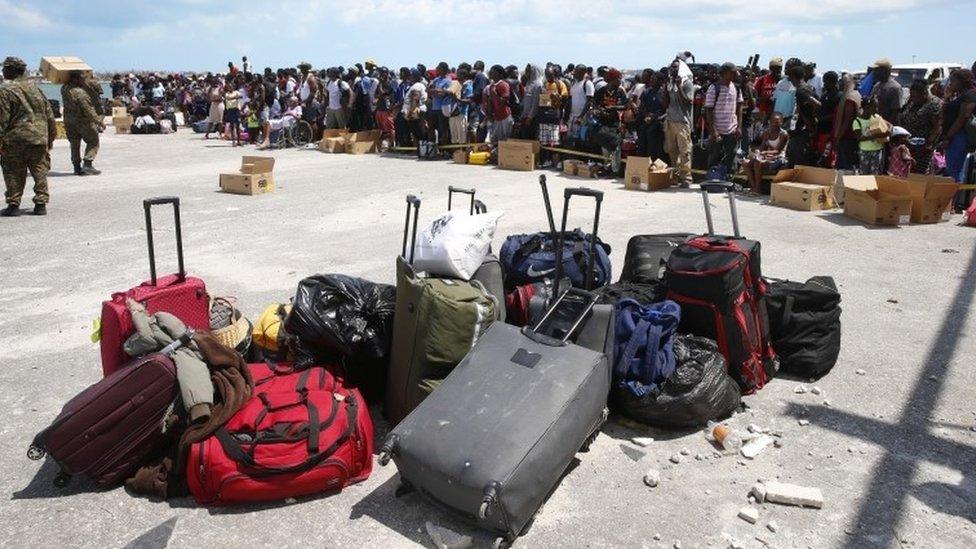Storm Dorian: Widespread power cuts as winds batter Nova Scotia
- Published

Trees were toppled in Halifax, Nova Scotia
Storm Dorian has smashed into the Canadian province of Nova Scotia, toppling trees and cutting power for more than 450,000 people.
Now a post-tropical cyclone, Dorian hit Halifax on Saturday with winds of 100mph (160km/h) and is due to cross into Newfoundland.
The Canadian government said the military would help recovery efforts.
It comes days after Dorian devastated parts of the Bahamas. The death toll there is 43 but expected to increase.
The former hurricane has churned northwards up the US eastern seaboard to Canada. The Canadian Hurricane Centre said it had received reports of rainfall as high as 150mm (six inches) in some areas.
Video footage from Halifax showed a crane being blown on to a block of partially built flats. There were no reports of injuries.

The collapsed crane fell against a building and blocked a main road in Halifax
The storm is expected to pass over northern Newfoundland and eastern Labrador on Sunday. Residents close to the shore have been advised to evacuate as a precaution.
Canadian Prime Minister Justin Trudeau has been briefed on the storm.
Allow X content?
This article contains content provided by X. We ask for your permission before anything is loaded, as they may be using cookies and other technologies. You may want to read X’s cookie policy, external and privacy policy, external before accepting. To view this content choose ‘accept and continue’.
Last Sunday, Dorian struck islands in the north-west Bahamas as a category five hurricane, with winds reaching 185mph (295km/h).
On Sunday, ships and aircraft were still helping to move thousands of people from Grand Bahama and the Abacos Islands.
Officials believe hundreds of bodies are yet to be found in areas flattened by the winds or smashed by storm surges.
UN officials said about 70,000 people were in need of assistance.
Survivors of the hurricane say there is utter devastation
Aid agencies say the situation on Great Abaco is desperate, with residents unable to find food or clean water.
Darren Tosh, director of the aid group Samaritan's Purse, told the BBC that he was concerned about the spread of disease from unsafe water, bodies and destroyed crops.
"There's a horrible amount of disease that can develop after an event like this," he said.
Tourism minister Dionisio D'Aguilar called on Bahamians to "come together" to help the recovery effort.
"There are no words to convey the grief we feel for our fellow Bahamians in the Abacos and Grand Bahama," he said.
He said many parts of the Bahamas - an archipelago of more than 700 islands - were not affected by the hurricane.
"We also implore travellers to continue visiting the Bahamian islands that were not impacted by Hurricane Dorian as this will help our people tremendously," he added.
- Published7 September 2019

- Published6 September 2019

- Published7 September 2019
